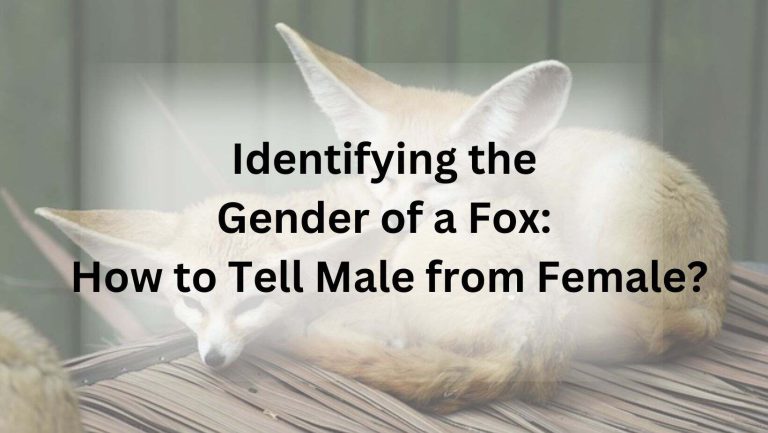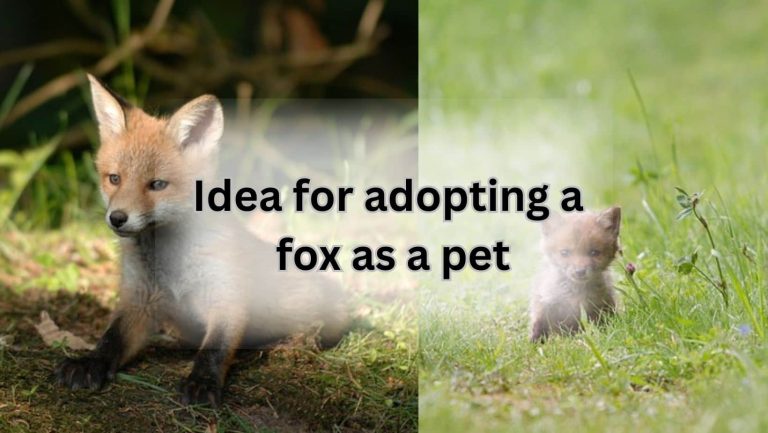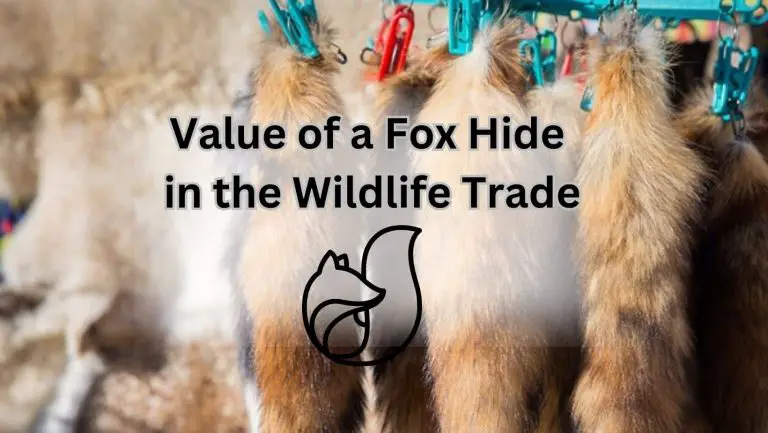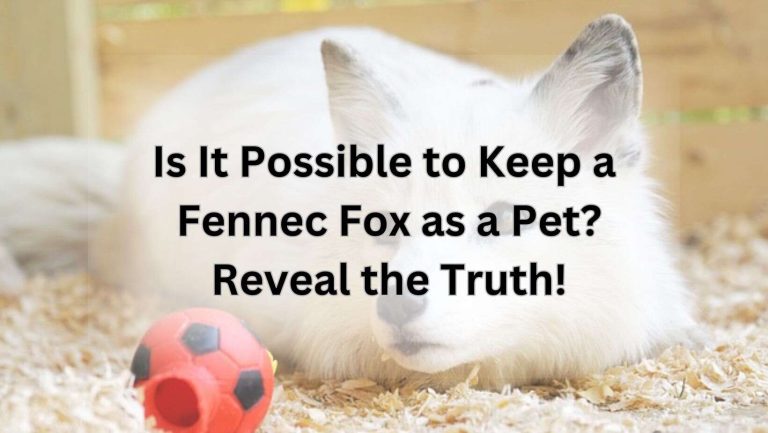Are Foxes Truly Monogamous? Discover the Surprising Truth!
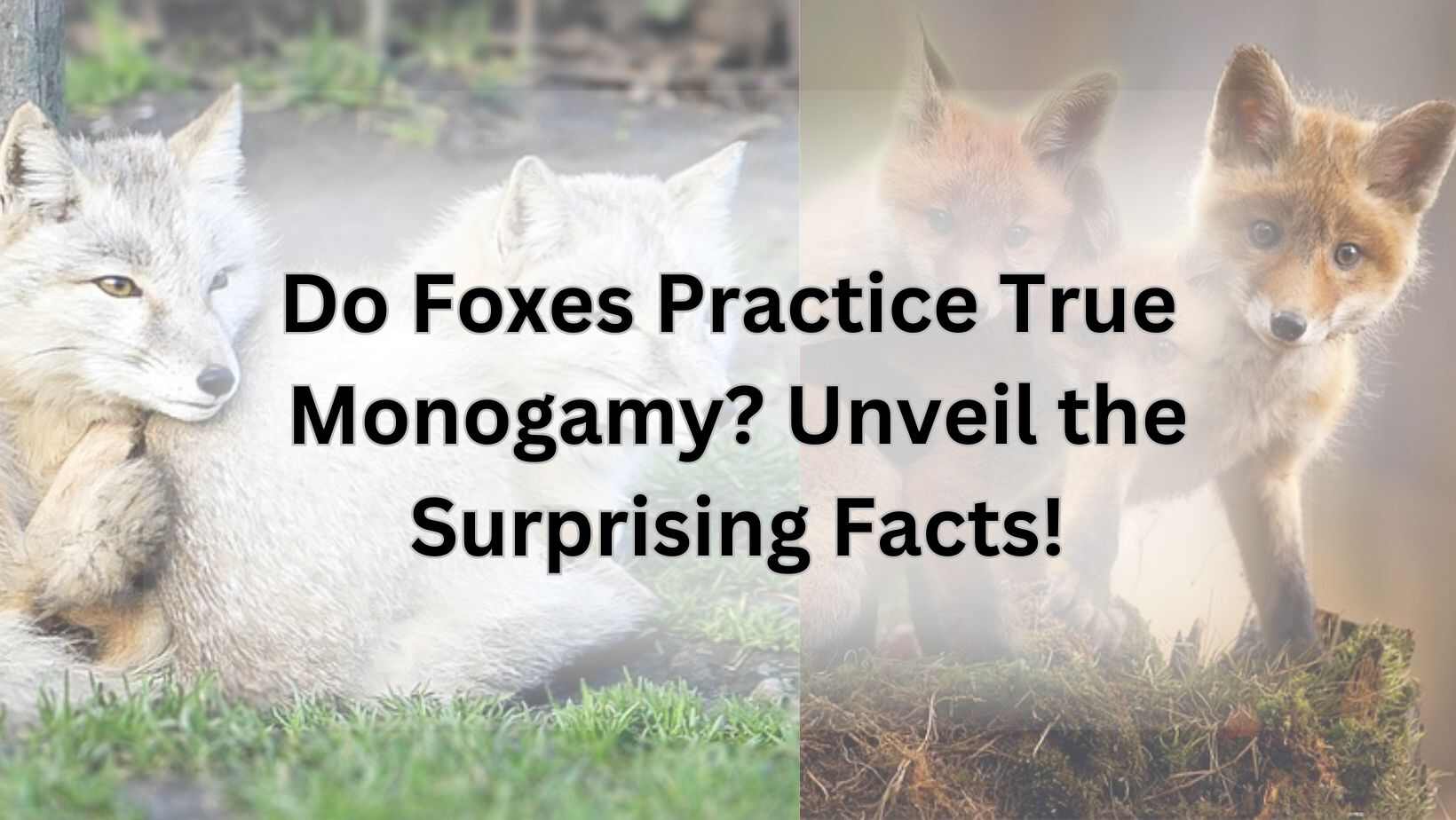
Fox Mating Behavior
Are foxes monogamous creatures? Let’s delve into the intriguing world of fox mating behavior to uncover the truth behind their relationships.
Pair Bonding in Foxes
Do foxes mate for life like some other animals? Well, the answer is not as straightforward as you might think. While foxes are known to form strong pair bonds during the breeding season, these bonds are not necessarily lifelong commitments. Foxes exhibit monogamous behavior during this period, with a male and female fox coming together to raise their offspring. However, once the breeding season is over, these pair bonds may dissolve, and foxes may seek new partners in the following years.
Seasonal Mating Habits
How do foxes go about the process of mating? Foxes are known to be seasonal breeders, with mating typically occurring in the winter months. During this time, male foxes will compete for the attention of females, engaging in elaborate courtship displays to win over a potential mate. Once a pair bond is established, the female fox will give birth to a litter of pups after a gestation period of around 50 days, with both parents taking on the responsibility of caring for and raising their young.
Social Structure of Fox Families
What does the family dynamic look like in a fox den? Fox families, also known as a “vixen,” consist of the breeding pair and their offspring. These families exhibit a hierarchical structure, with the dominant male and female foxes taking the lead in providing food and protection for the young. The offspring will stay with their parents for several months before venturing out on their own to establish their territories.
So, while foxes may not be strictly monogamous for life, their breeding behavior is still fascinating to observe. From pair bonding to seasonal mating habits and the intricate social structure of fox families, these creatures certainly know how to navigate the complexities of relationships in the wild.
Factors Influencing Fox Monogamy
1. Ecological Factors
Why do foxes choose to stick with one partner for life? Well, let’s take a look at the environment they live in. Foxes often reside in areas where resources are limited, such as food and shelter. By forming monogamous bonds, they can ensure that they have a reliable partner to help them navigate these challenges. It’s like having a trusty sidekick in the wild!
2. Evolutionary Advantages
Have you ever wondered why some animals choose to be monogamous while others prefer a more promiscuous lifestyle? In the case of foxes, monogamy offers several evolutionary advantages. By staying loyal to one mate, they can increase their chances of successfully raising offspring. This ensures that their genes are passed down to the next generation, ultimately contributing to the survival of their species.
3. Genetic Influences on Monogamy
Do genetics play a role in the monogamous behavior of foxes? Research suggests that certain genes may influence their ability to form long-lasting bonds with a single partner. These genetic predispositions could explain why some foxes are more inclined to be monogamous than others. It’s like they have a built-in mechanism that guides their relationship choices!
So, the next time you spot a pair of foxes snuggled up together in the wild, remember that their monogamous behavior is not just a random occurrence. It’s a result of a complex interplay of ecological factors, evolutionary advantages, and genetic influences. Foxes may be known for their cunning ways, but when it comes to love, they are loyal and devoted partners.
Monogamy vs. Polygamy in Foxes
Comparison of Monogamous and Polygamous Species
Ever wondered why some animals choose to stick with one partner while others play the field? Well, when it comes to foxes, they fall into the monogamous category. Unlike their polygamous counterparts, monogamous foxes form strong bonds with their mates and stick together for life. This unique behavior sets them apart in the animal kingdom and showcases the beauty of their committed relationships.
Benefits of Monogamy in Fox Populations
Why do foxes choose monogamy over polygamy? The answer lies in the benefits it brings to their populations. By forming lasting bonds, monogamous foxes can work together to raise their young, providing them with the best chance of survival. This teamwork ensures that the fox population remains strong and stable, making monogamy a valuable trait in the wild.
Challenges of Monogamy in the Wild
But, of course, monogamy isn’t without its challenges in the wild. Foxes must navigate the dangers of their environment while also maintaining their bond with their mate. This can be a tricky balancing act, requiring both partners to work together to overcome obstacles and protect their family. However, the rewards of monogamy, such as a secure partnership and successful offspring, make it all worth it in the end.
So, next time you spot a pair of foxes frolicking in the woods, remember that they are part of a unique and loving relationship that has stood the test of time. Monogamy may not be common in the animal kingdom, but for foxes, it’s a beautiful way of life that ensures the survival and success of their species.
Fox Monogamy in the Animal Kingdom
Monogamy in Other Canine Species
Do you ever wonder if foxes are truly loyal lovers, or are they playing the field like some other canine species? Let’s dive into the fascinating world of monogamy in the animal kingdom, starting with our furry friends, the foxes.
Monogamy in Non-Canine Mammals
Are foxes the exception or the norm when it comes to monogamy in mammals? Let’s explore how their breeding behavior compares to other non-canine species and see if they stand out in the world of animal relationships.
Unique Aspects of Fox Monogamy
What makes fox monogamy so special and intriguing? Let’s uncover the unique aspects of fox pair bonding and social structure that set them apart from other animals in the wild.
When it comes to foxes, monogamy is a common trait that sets them apart from many other members of the animal kingdom. While some canine species may have a more promiscuous approach to mating, foxes are known for forming strong and lasting bonds with their partners.
In other non-canine mammals, monogamy is not as prevalent, making foxes a standout example of loyalty and commitment in the wild. Their dedication to their mates and offspring showcases a level of care and cooperation that is truly remarkable.
One of the unique aspects of fox monogamy is their tendency to mate for life, with both parents actively participating in raising their young. This collaborative effort in parenting helps ensure the survival and well-being of their offspring, highlighting the importance of their bond.
Overall, foxes demonstrate a level of monogamy and pair bonding that is both admirable and endearing. Their commitment to each other and their families serves as a reminder of the beauty and complexity of relationships in the animal kingdom.
Reproductive Success in Monogamous Foxes
Parental Care in Monogamous Fox Pairs
Ever wondered how monogamous foxes handle parental duties? Do they share the workload equally or does one partner end up doing all the heavy lifting? Well, in the world of foxes, monogamous pairs are a true team when it comes to raising their offspring. Both the male and female foxes play an active role in caring for their young, from hunting for food to keeping the den safe and warm. This division of labor ensures that the fox pups receive the best care possible, setting them up for success in the wild.
Impact of Monogamy on Fox Offspring
What impact does monogamy have on the offspring of fox pairs? Research suggests that monogamous foxes tend to have higher reproductive success compared to their non-monogamous counterparts. This is because the stability and commitment of the monogamous bond create a secure environment for the young foxes to grow and thrive. With both parents working together to provide for their offspring, the chances of survival and successful maturation increase significantly.
Survival Rates of Monogamous Fox Families
Do monogamous fox families have higher survival rates in the wild? It turns out that the bond between monogamous fox pairs not only benefits their offspring but also increases the overall survival rates of the family unit. By working together to protect their territory, hunt for food, and raise their young, monogamous foxes create a strong support system that helps them navigate the challenges of the wild. This teamwork and dedication to each other and their offspring make monogamous fox families a force to be reckoned with in the animal kingdom.
In the world of foxes, monogamy isn’t just about love; it’s about survival and ensuring the next generation has the best possible start in life. So next time you spot a pair of foxes out in the wild, remember that behind those playful antics and cute faces, there’s a bond that runs deep and a commitment to family that rivals even the most dedicated human relationships. Foxes truly are nature’s romantics, showing us that love, teamwork, and a little bit of cunning can go a long way in the wild.
Challenges to Fox Monogamy
Threats to Fox Habitat
Are foxes really the faithful partners we think they are, or do external factors play a role in their monogamous behavior? Let’s dive into the challenges they face in their natural habitat. Foxes, like many other wildlife species, are increasingly losing their homes due to human encroachment. As their habitats shrink, the pressure on fox pairs to find suitable territories for breeding increases. This can lead to disruptions in their monogamous relationships as they struggle to adapt to changing landscapes.
Competition for Resources
Do foxes face relationship troubles when resources become scarce? In the wild, competition for food and shelter can put stress on fox pairs, potentially leading to conflicts within their monogamous bonds. As they fight for survival, foxes may prioritize individual survival over maintaining their monogamous relationships. This can challenge the traditional notion of foxes as monogamous creatures and shed light on the complexities of their social dynamics.
Impact of Climate Change on Fox Monogamy
How does climate change affect the love lives of foxes? With shifting weather patterns and environmental changes, fox populations are facing new challenges that can impact their monogamous behavior. Changes in temperature, precipitation, and food availability can disrupt the delicate balance within fox pairs, affecting their ability to maintain monogamous relationships. As the world around them evolves, foxes must adapt to survive, potentially altering their mating habits in the process.
In the wild world of foxes, monogamy may not always be a straightforward concept. External factors such as habitat loss, resource competition, and climate change can pose significant challenges to their traditional mating behaviors. As we continue to study and observe these fascinating creatures, we gain a deeper understanding of the complexities of their relationships and the impact of environmental changes on their monogamous tendencies. So, the next time you see a pair of foxes frolicking in the wild, remember that their love story may be more complicated than meets the eye.
Conservation Implications of Fox Monogamy
Importance of Monogamy in Fox Conservation
Did you know that monogamy in foxes plays a crucial role in their conservation efforts? These faithful fox pairs work together to raise their young, ensuring the survival of the species. Imagine the teamwork and dedication these fox couples exhibit in the wild!
Strategies for Protecting Monogamous Fox Populations
How can we protect these monogamous fox populations to ensure their continued existence? By preserving their natural habitats and minimizing human interference, we can help these fox pairs thrive and maintain their monogamous relationships. Let’s work together to safeguard these faithful foxes!
Role of Human Intervention in Fox Monogamy
What role does human intervention play in the monogamous behavior of foxes? By promoting conservation efforts and raising awareness about the importance of fox monogamy, we can positively impact their populations. Let’s educate others about the significance of these faithful fox relationships and inspire more people to support their conservation.
In the world of foxes, monogamy isn’t just about love – it’s a key factor in their survival. By understanding and protecting their monogamous behavior, we can ensure that these incredible creatures continue to roam the wild for generations to come. Let’s celebrate the bond between fox pairs and work together to preserve their unique way of life.
Research Methods in Studying Fox Behavior
Ever wondered how scientists unravel the mysteries of fox behavior?
Researching the mating habits and social structures of foxes requires a combination of field observations, genetic analysis, and behavioral studies. By tracking fox populations in the wild and observing their interactions, researchers can gain valuable insights into their breeding behavior and social dynamics.
How do scientists use technology to study fox behavior?
Advancements in technology, such as GPS tracking collars and camera traps, allow researchers to monitor fox movements and behaviors in real-time. This technology provides valuable data on fox pair bonding, mating rituals, and territorial behavior.
What role do genetic studies play in understanding fox monogamy?
Genetic analysis of fox populations can reveal important information about mate fidelity and parentage. By studying the DNA of foxes and their offspring, scientists can determine the extent of monogamy within fox pairs and the stability of their relationships.
Scientific Studies on Fox Monogamy
Have researchers definitively proven that foxes are monogamous?
Scientific studies on fox monogamy have provided evidence that some species, such as the red fox, exhibit monogamous behavior. However, the extent of monogamy can vary among different fox species and populations. Some foxes may form long-term pair bonds, while others may engage in more promiscuous mating behavior.
What factors influence fox pair bonding and monogamy?
Environmental factors, resource availability, and social dynamics can all influence the mating habits of foxes. In areas with abundant food sources and low competition, foxes may be more likely to form monogamous pairs. Conversely, in environments with limited resources, foxes may exhibit more flexible mating strategies.
Future Directions for Fox Monogamy Research
What are the next steps in studying fox monogamy?
Future research on fox monogamy may focus on the genetic mechanisms underlying pair bonding, the impact of human activities on fox mating behavior, and the role of monogamy in fox conservation efforts. By continuing to study fox behavior in the wild, researchers can uncover new insights into the complex world of fox relationships.
Cultural Perceptions of Fox Monogamy
Folklore and Myths Surrounding Fox Monogamy
Have you ever wondered why foxes are often associated with monogamy in folklore and myths? Let’s dive into the enchanting world of stories and legends where foxes play a central role in tales of love and loyalty. From ancient fables to modern-day legends, foxes have been portrayed as faithful partners who mate for life. But is this portrayal based on reality or just a product of human imagination?
Symbolism of Fox Monogamy in Different Cultures
How do different cultures interpret the symbolism of fox monogamy? Explore the fascinating ways in which foxes are seen as symbols of fidelity and commitment in various traditions around the world. From Asia to Europe, foxes hold a special place in the hearts of many cultures, representing the virtues of loyalty and devotion in relationships. But do these symbolic meanings reflect the true nature of fox behavior?
Human Perspectives on Fox Monogamy
What do humans think about fox monogamy? Delve into the curious minds of people who have observed foxes in the wild and pondered the mysteries of their mating habits. Some believe that foxes are truly monogamous creatures, while others argue that their behavior is more complex than meets the eye. As a seasoned Canid Wild Life Lover, you know that the truth about fox monogamy may lie somewhere in between myth and reality.
10. Conclusion: Understanding Fox Monogamy
10.1. Summary of Fox Monogamy Behavior
Ever wondered if foxes are loyal lovers or just playing the field? Let’s dive into the fascinating world of fox monogamy! These sly creatures are known for their strong pair bonding, often mating for life. Foxes display remarkable loyalty to their partners, sharing territory, raising young together, and even hunting as a team. This monogamous behavior helps ensure the survival of their offspring and strengthens their social structure.
10.2. Implications for Fox Conservation
What impact does fox monogamy have on their conservation? Well, the strong bond between fox pairs plays a crucial role in maintaining stable populations. By sticking together and working as a team, foxes can better protect their territories and offspring from predators. Understanding their monogamous behavior is essential for conservation efforts, as it highlights the importance of preserving fox habitats and ensuring their continued survival in the wild.
10.3. Future Prospects for Studying Fox Monogamy
What does the future hold for studying fox monogamy? With advancements in technology and research techniques, scientists have more tools than ever to delve deeper into the intricate relationships of these captivating creatures. Studying fox monogamy can provide valuable insights into their social dynamics, breeding habits, and overall behavior. By continuing to study and understand fox monogamy, we can gain a greater appreciation for these intelligent and devoted animals.
So, there you have it – a glimpse into the world of fox monogamy! These clever canids may be sly, but when it comes to love, they’re all about commitment. From their strong pair bonds to their essential role in conservation, fox monogamy is a fascinating aspect of their behavior that deserves further exploration. Let’s continue to unravel the mysteries of fox relationships and ensure the protection of these loyal and loving creatures in the wild.

